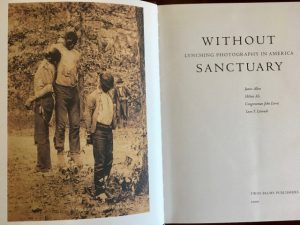I finish Salt Body Shimmer the same week the world receives the news that the cops who killed Breonna Taylor will not be charged with murder. I am sitting outside, the wind whirrs in my ears. I close my eyes. The safety I build for myself is immense, the longer I retreat into myself. I think of Breonna and other Black womxn. I mourn them and honor their memory. I become held in the fact that I can see and hear myself. I am held, in the full extent of my Blackness. I am held in the safety of my own self, in the truth that I am protected by the entity of who I am.
I cannot distinguish this feeling of safety from how I felt myself absorbed by Aricka Foreman’s debut full-length collection of poems. In the universe of this collection, a self much like me and so many others both alive and surviving, is centered. We are given the space to be seen, to the full extent of our being. It is not solely unapologetic visibility that Foreman gives us, it’s a willingness to risk and dare language to lay bare the grief and beauty that lies within being alive and Black on this earth. It’s Foreman’s commitment to holding space for the beauty, joy and grief of being alive that calls us in and never lets us go.
Salt Body Shimmer takes us through a reckoning of the self within five sections of distinct poems that are unapologetically bold. Poems such as “You Need[ed] Me” echo both Rihanna’s emboldened voice along with the memory of Tiarah Poyau, a college student gunned down for telling a man to stop grinding against her in 2016. Poems like “Sancti Spiritus” and “We Live Best / In the Spaces Between Two Loves” gather the intimate and spiritual experiences of the world and the body to reflect the collisions between pleasure, the supernatural and the world itself.
I found myself deeply haunted by Foreman’s “Fear Leaves Behind Its Own Lie,” a poem that pushes us towards an unveiling of trauma, sexual assault and the unraveling of memory. Foreman writes:
It wasn’t that bad
He wasn’t quick Was slow,
And the cane creak sticks
He didn’t finish In a dream
Had you touch him where Grits were stirred
It was a Saturday morning It was summer
Season for running He said after
Titties gettin’ big You dreamed it
Foreman structures the poem in a series of back and forth moments where the speaker is recounting a traumatic experience with an “og,” someone Foreman defines as “a predator with no specific gender performance.” The speaker’s perspective is fragmented, with the lines ending abruptly along with the lines rebelling against distinct end stops, such as periods. Foreman experiments with a form in which language collides and resists gaps and stopping. We are carried along with the thoughts of the speaker, in an almost restless nature. In his craft book The Art of Daring, Carl Phillips writes about restlessness as an inherent experience within poetry. He writes, “It’s a poem of restlessness, the ambitious kind, that spurs us toward greater achievement, only to find, sometimes, that there is nevertheless no satisfaction, no resting—and restlessness then becomes a state of hauntedness, as we push over and over again toward a recognition of failure, for why else are we not, after all that striving, finally at peace?” (41) Foreman creates an ecosystem of restless language that rattles against the conventional and manifests as a form that speaks towards resilience.
We are not permitted the privilege of avoiding the haunting nature of trauma within “Fear Leaves Behind Its Own Lie.” It’s within the restlessness of this poem that Foreman conditions a rebellion against static language and a push towards the disruptive experience of trauma. This disruption is echoed inside language where we don’t get a sense of peace, yet an overall understanding that “fear leaves behind its own lie,” a truth that titles the poem and serves as the last line of the poem.
In addition to a presence of reckoning, there’s a depth of resistance that sits at the core Salt Body Shimmer. Foreman’s poems take us on a journey where the speaker actively rejects and resists the world around them. The stakes for this resistance are survival and safety. Phillips writes: “I have thought of writing as a form of—or perhaps the record of—a resistance to difficult realities that we, as writers, nevertheless, as if unavoidably, make it our quest to look at all the more closely, even as we begin to resist them” (55). We see this act of resistance in Foreman’s poems such as “Before I Fire Her, The Therapist Asks What IS it like to be a Black Woman HERE: A Monologue,” a poem written by a speaker who should be experiencing emotional safety, but who is beholden to the overt whiteness, voyeurism and misunderstanding of her therapist. The act of writing this poem serves as a reckoning to a difficult reality, such as Phillips describes, and a concerted effort to write against that space. What is this but a rebellion of language?
I’m struck by a line in Foreman’s “Always Something Here to Remind Me,” another poem where the speaker’s voice actively pushes against a marginalization. This poem, written entirely in couplets, explores duality and the act of talking back and pushing against the oppressive forces around the speaker. In one stanza, Foreman writes: “I stare And she stares and waits And I stare, say / nothing and we go on like this under the flickering.”
This moment is paralleled by a further pushing against, where the “stare” within this earlier couplet becomes a voice:
…And she doesn’t ask before reaching
And I don’t pause before grabbing her wrist
Just Get Me What I Asked For And she stares
and I stare, the lights still buzzing…
This back and forth between the speaker and sales associate serves as a microcosm of a larger dialogue the poem engages with. There’s the act of being told who you are and who you should be, and then there is the authentic self, clawing its way forth in all its grace and anger. “Always Something Here to Remind Me” ends with a voice and a crying out. The speaker names Michael Brown but also echoes the many other Black people killed by police. It’s impossible to not see this poem as a gesture towards a reclamation, surrender and justified outrage. This moment gives a glimpse into a space where the speaker has no other choice but to reckon with the ability to not control the way another’s projected identity is placed upon them and the way Black death happens around them. The sense of grief and anger is palpable, not only in this poem, but in the collection as a whole. Phillips writes,
I believe we write as a means not of laying these ghosts and demons to rest, but of giving them, however briefly, a context within which we feel we’ve brought under control what we know full well we cannot control. The poem is a form of negotiation with what haunts us—or to put it another way, is the interior dialogue we have with our other selves, insofar as what haunts us is, in part, who we are. (65)
In Salt Body Shimmer the racial trauma, misogyny and violence that the speaker faces becomes part of who they are. The devastating world the speaker shines through is a haunting that also informs who they are in the world. There’s an inability to leave behind the haunting, and an ability to thrive amidst it. Aricka Foreman’s collection not only brings visibility to other Black womxn, but shows the varied internal worlds that Black womxn can hold. This collection lifts up the collective and individual experiences that echo within our existence in this world.
I often find myself wondering where I can exist in the world. As I let myself become further and further immersed by the familiar world created in Salt Body Shimmer, I am reminded of the magic we have in creating a home for ourselves. Maybe the world is one we build for ourselves—in creating, in language beckoning our ability to live.





